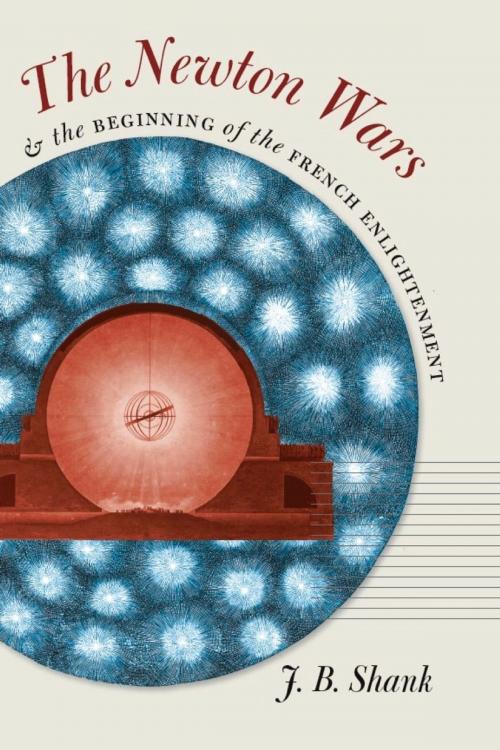The Newton Wars and the Beginning of the French Enlightenment
Nonfiction, Science & Nature, Science, Physics, General Physics, Other Sciences, History| Author: | J.B. Shank | ISBN: | 9780226749471 |
| Publisher: | University of Chicago Press | Publication: | September 15, 2008 |
| Imprint: | University of Chicago Press | Language: | English |
| Author: | J.B. Shank |
| ISBN: | 9780226749471 |
| Publisher: | University of Chicago Press |
| Publication: | September 15, 2008 |
| Imprint: | University of Chicago Press |
| Language: | English |
Nothing is considered more natural than the connection between Isaac Newton’s science and the modernity that came into being during the eighteenth-century Enlightenment. Terms like “Newtonianism” are routinely taken as synonyms for “Enlightenment” and “modern” thought, yet the particular conjunction of these terms has a history full of accidents and contingencies. Modern physics, for example, was not the determined result of the rational unfolding of Newton’s scientific work in the eighteenth century, nor was the Enlightenment the natural and inevitable consequence of Newton’s eighteenth-century reception. Each of these outcomes, in fact, was a contingent event produced by the particular historical developments of the early eighteenth century.
A comprehensive study of public culture, The Newton Wars and the Beginning of the French Enlightenment digsbelow the surface of the commonplace narratives that link Newton with Enlightenment thought to examine the actual historical changes that brought them together in eighteenth-century time and space. Drawing on the full range of early modern scientific sources, from studied scientific treatises and academic papers to book reviews, commentaries, and private correspondence, J. B. Shank challenges the widely accepted claim that Isaac Newton’s solitary genius is the reason for his iconic status as the father of modern physics and the philosophemovement.
Nothing is considered more natural than the connection between Isaac Newton’s science and the modernity that came into being during the eighteenth-century Enlightenment. Terms like “Newtonianism” are routinely taken as synonyms for “Enlightenment” and “modern” thought, yet the particular conjunction of these terms has a history full of accidents and contingencies. Modern physics, for example, was not the determined result of the rational unfolding of Newton’s scientific work in the eighteenth century, nor was the Enlightenment the natural and inevitable consequence of Newton’s eighteenth-century reception. Each of these outcomes, in fact, was a contingent event produced by the particular historical developments of the early eighteenth century.
A comprehensive study of public culture, The Newton Wars and the Beginning of the French Enlightenment digsbelow the surface of the commonplace narratives that link Newton with Enlightenment thought to examine the actual historical changes that brought them together in eighteenth-century time and space. Drawing on the full range of early modern scientific sources, from studied scientific treatises and academic papers to book reviews, commentaries, and private correspondence, J. B. Shank challenges the widely accepted claim that Isaac Newton’s solitary genius is the reason for his iconic status as the father of modern physics and the philosophemovement.















